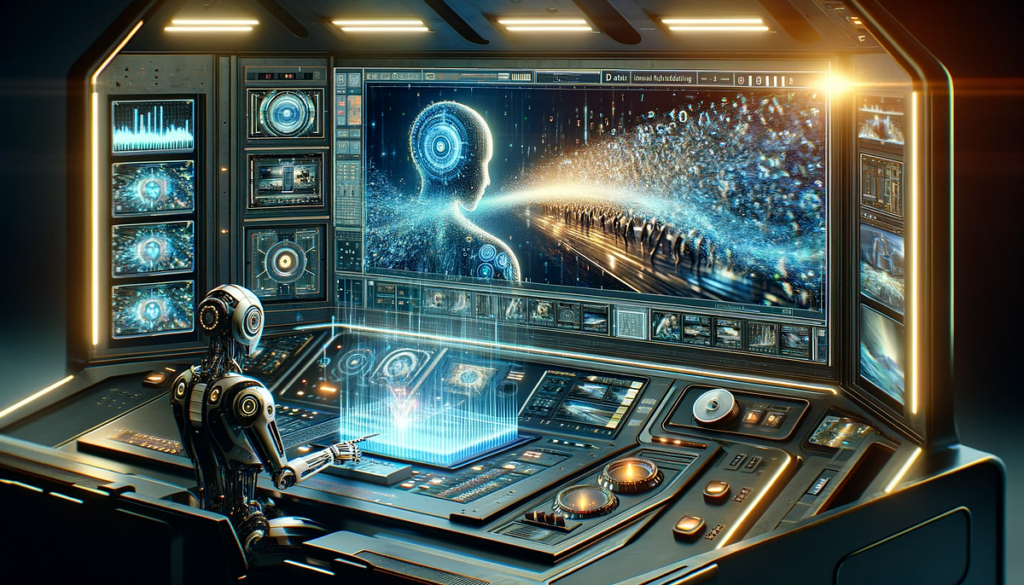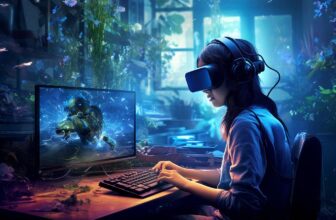
The Future of AI in Games: Smarter NPCs or Total Control?
Artificial intelligence (AI) has already made a significant impact on the gaming world. From procedural content generation to dynamic difficulty adjustment, AI’s role in shaping player experiences is undeniable. But as technology continues to evolve, many wonder: what does the future hold for AI in video games? Will it lead to more lifelike and intelligent non-playable characters (NPCs), or will AI evolve to a point where it has total control, potentially reshaping the way we play games entirely?
In this blog post, we’ll explore the possibilities of AI in gaming, the current trends, and the potential future of this fascinating technology.
The Current Role of AI in Games
Before we look ahead, let’s understand where we stand today. AI is an integral part of gaming, especially in single-player and massively multiplayer online games. Currently, AI is mostly responsible for the behavior of NPCs, such as enemies, allies, or neutral characters, depending on the game. These NPCs follow a set of predefined behaviors to simulate intelligence, often based on decision trees, pathfinding algorithms, and state machines.
For example, in action games like The Last of Us or Red Dead Redemption 2, NPC enemies use AI to take cover, plan attacks, and react to the player’s actions. Allies, on the other hand, use AI to help the player by providing support in combat or solving puzzles.

In strategy games like StarCraft II or Civilization VI, AI plays a more complex role, controlling entire factions or armies that compete with the player. The decisions made by these AI-controlled factions can seem incredibly intelligent, especially when the game’s difficulty level is ramped up.
However, despite these impressive systems, AI still operates largely within a constrained environment. NPCs may seem smart in combat or in the way they react to the player’s actions, but they are still bound by the rules set by the developers. They can’t adapt in truly dynamic ways, and their behavior often feels scripted.
The Possibility of Smarter NPCs
As AI technology improves, the most immediate change we can expect in gaming is the development of smarter, more reactive NPCs. Advances in machine learning, particularly reinforcement learning, could lead to NPCs that learn from player behavior and adapt accordingly.
For example, rather than relying on predetermined actions or behaviors, future NPCs could analyze how a player approaches a scenario and adjust their strategies on the fly. In a tactical game, enemies could learn your attack patterns and counter them. Allies could also adapt based on the player’s preferences, learning what type of support they prefer in combat—whether it’s healing, crowd control, or offensive strategies.
Additionally, NPCs could develop more complex personalities and emotional responses. Games like The Sims already simulate rudimentary emotional responses, but imagine a game where NPCs have complex relationships with the player and each other, driven by AI that learns and grows over time. These NPCs could react to your actions, form alliances, and even experience conflict based on their own evolving motivations.
This shift toward adaptive AI would make the world feel much more alive and unpredictable, creating a deeper level of immersion for the player.
Total Control: AI as the Game Master

While smarter NPCs will certainly enhance gaming experiences, the future could bring even more radical changes with AI in control of the entire game environment. Imagine a world where AI doesn’t just control individual characters or factions but manages the entire game world, from the narrative to the gameplay mechanics. This level of AI could lead to dynamic, ever-changing worlds that evolve based on player input.
One potential development is procedural storytelling, where the AI generates a story that adapts not only to player choices but also to their playing style. In a game like The Witcher 3, NPCs might respond in real-time to the player’s actions, and the storyline could shift in unexpected directions depending on how the player interacts with the world. No two playthroughs would ever be the same, and the game world would feel as alive as a living organism, responding and evolving in real time.
Another possibility is the use of AI to create entirely personalized gaming experiences. Through deep learning and data analysis, AI could learn what types of gameplay styles, narratives, and mechanics resonate most with a player. This could allow games to adapt entirely to the player’s preferences, providing a tailored experience every time they log in. The game might even analyze how you’re playing and suggest different strategies, quests, or side activities that you would likely enjoy, eliminating the need for static game design and offering near-limitless customization.
However, this level of control raises some interesting ethical questions. Could AI-driven worlds become so immersive and unpredictable that they pose a risk of addiction or overwhelm the player? Could AI-driven games be designed to manipulate players’ emotions or exploit their vulnerabilities? These are important considerations that game developers and AI researchers will need to navigate as they explore the future of AI in gaming.
Conclusion: Embracing the Future of AI
The future of AI in gaming is undoubtedly exciting, and we’re only scratching the surface of what’s possible. Smarter NPCs and more dynamic, reactive worlds will make games more immersive and personalized, providing players with richer, more engaging experiences. But the concept of AI having total control over a game world could take things even further, creating games that evolve in real-time based on player actions.
The next few years could bring incredible innovations, but with that power comes responsibility. Developers must ensure that AI-enhanced games maintain player agency, are ethically sound, and provide positive, enriching experiences. As we look toward this new frontier, one thing is clear: AI in gaming is not just about making games smarter—it’s about creating a new level of interaction, freedom, and immersion that will transform the way we play.








